|
Can’t we all get along? There’s plenty of wine and word count out there for everyone.
And you thought the bickering over the “clean” wine trend was exhausting. But no, the wine industry loves to fight itself, so here we go with the latest cold war: Old school wine crowd has had enough of the new school wine crowd and a Twitter battle ensues. Seriously. Are “real” cosmetic industry writers this upset about beauty influencers demonstrating their morning skincare routine on Tik Tok?
I’m not entirely sure what spurred the latest round of anti-wine-influencer articles – perhaps the fact that we are all spending a whole lot more time on our devices thanks to COVID restrictions – but something appears to have stoked the coals on the whole “wine influencers aren’t influential” argument, and I am not here for it.
While reading James Lawrence’s recent piece in Wine-Searcher.com, “The Incurable Plague of Wine Influencers,” I found myself clenching my jaw. My pulse actually quickened. I even yelled at my husband about it, as though he had somehow played a role.
In his searing critique, Lawrence writes, “More than two million people dead; massive disruption to our lives; job losses and depression – but take heart, the world's influencers have managed to keep snapping.” But, he has managed to keep writing totally unhelpful, condescending smackdowns of said influencers, has he not? In what way is this better?
He continues, “Personally, I would have thought that societies living under lockdown would have scant need for their brand of nauseating self-aggrandizement. When you're filing for divorce and claiming unemployment benefits, smug posts about banana daiquiris and Prada surely come as little comfort.” Is reading smug articles like his then supposed to serve as a panacea? Should we do away with all forms of mindless (or mindful) entertainment until the world is a better place? Did no one else binge watch Tiger King during lockdown, or was that just me? 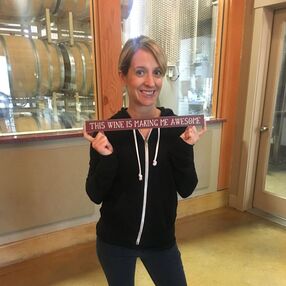 Or maybe I'm making the wine awesome. Or maybe I'm making the wine awesome.
Considering that taking stylized bottle and vineyard shots is how some influencers actually earn their living – or at least their wine money (the spending of which helps the wine industry) – these posts may very well be keeping them from having to file for unemployment.
Let’s take it one step further. If an influencer, with their eye-catching bottle shot, gets one person to head to a winery’s website to make a purchase, or follow a winery’s account on social media, or make a mental note to visit when things open back up, is that influencer not doing more for the business of wine – which has been hit pretty hard thanks to lockdown orders, as we all well know – than Lawrence is in criticizing them for taking selfies? At the very least their feed isn’t clogged with static posts talking about how terrible and useless “real” wine writers are. This isn’t a zero-sum game. It’s possible for some wine enthusiasts to exist in their grouchy and judgmental wine world, while social media stars exist in their aspirational, technicolor fantasy land, without the planet self-destructing, I promise. Both will have their fans. They may even get along if we let them. Wine writer Tom Wark’s response piece, “Stalin, the Khmer Rouge and Wine Influencers” was somewhat gentler, and certainly far more helpful. He offers practical advice for brands considering working with influencers, equating a social media post to a form of advertising. But there is still a whiff of disdain as he observes, “Most wine writers attempt to tell a genuine story. Wine Influencers attempt to find the right light.” I suppose it depends on what sort of story the consumer wants to read. I know plenty of wine lovers who spend a pretty penny on their annual wine consumption who would rather get a root canal than read certain high profile wine journals cover to cover. And, let’s be real – many people purchase wines based on interesting or striking labels, so something can still have value – and tell a story – just by virtue of being nice to look at. 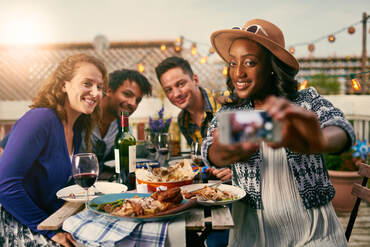 Friends dining together with wine. Friends dining together with wine.
To this day, I still struggle to fully understand what the anti-influencer crowd is so up in arms about. Is it that they are worried influencers are threatening their jobs, or their place among wine consumers? The very integrity of wine itself? I’ve said it once, and I’ll say it again for those in the back: Let’s please remember that wine – while certainly worthy of in-depth discussion and analysis – is ultimately a product consumed by the majority of wine consumers for pleasure. I’m not sure writing condescending, dismissive, arrogant pieces against social media influencers seeking to promote it is helping the U.S. wine market’s cause.
Ranting to my husband aside, I’ve tried to examine why these rages against influencers make me so upset, and I think it comes down to three things:
First, the level of vitriol in some of the anti-influencer rhetoric hints at the ongoing sexism within the wine industry. The wine influencers that tend to be referenced in these pieces are indeed female, and it feels like their work – again, as hard as it is for some people to believe, this is how many of the best of them make a living – is being undermined by men. The narrative also often fails to recognize the breadth and diversity of wine influencers out there, lumping the educational in with the irreverent, and the irreverent in with the aspirational-lifestyle-driven… and ultimately dismissing them all. 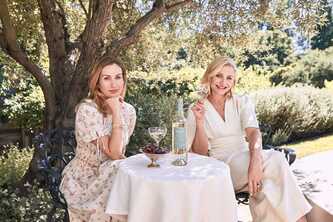 Cameron Diaz & Katherine Power toast their influence. Cameron Diaz & Katherine Power toast their influence.
Secondly, once again, the old guard of the wine industry is stubbornly refusing to meet consumers where they are. I watched a session at the recent Direct to Consumer Wine Symposium led by brilliant industry veteran Brian Baker in which he asked consumer panelists how they felt about wine ratings and where they got their wine information. Most said scores didn’t influence their wine-buying decisions. One panelist specifically referenced looking on social media for wine recommendations. She even mentioned gravitating to – gasp! – Cameron Diaz’s new wine brand (and the industry’s punching bag du jour) “Avaline” because of how engaging the content promoting it on social media was. Granted this was a small sample size, but it doesn’t take a statistician to take one look at the past few state of the industry reports and realize more needs to be done to capture and engage new and younger wine audiences.
And, lastly, the criticism isn’t solutions-oriented. These missives never feel inclusive and helpful, nor do they give the supposed offenders a chance to do better. These articles just feel like a worse form of preaching to the choir – whining to people who look and sound like you, and already agree with you.
One day, when social media influencers have been eclipsed by the next shiny new thing, I hope they will have the adaptability to prolong their relevance to the industry… or at the very least the class to support others who are trying to keep wine flowing into glasses. That’s what we’re all here for, right? A (Hopefully Helpful) Epilogue
A few months ago, I admittedly got a bit disenchanted with wine influencers as well, based on a few negative experiences working with them, and almost did an online rant of my own.
However, in reflecting on this disenchantment, I don’t think I was mad at the institution of the influencer, but merely the lack of professionalism of a few individuals who also happened to be influencers. As a business owner, a freelance writer, and PR and marketing professional, I have experienced the same frustrations working with journalists, partners, vendors and beyond, so the bad behavior isn’t unique to the well-lit selfie set. But, this piece is about influencers so, in the spirit of solutions-based writing, I would like to offer influencers a few tips on how to work best with brands and PR firms, and hopefully stave off some of this criticism from the other side… that is, if they even care to.
8 Comments
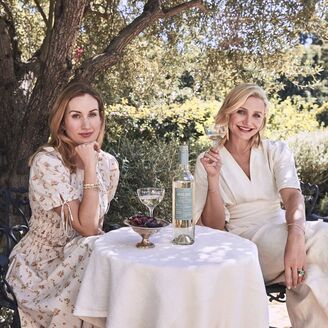 Cameron Diaz & Katherine Power, Aveline Founders, photo credit: Justin Coit Cameron Diaz & Katherine Power, Aveline Founders, photo credit: Justin Coit You’d think some White-Claw-Drinking “influencer” had just come out with a Hitler-themed wine brand with the amount of hate pieces that cropped up after Cameron Diaz & Katherine Power launched their new “clean” wine brand, Avaline. I don’t think I’ve seen this level of vitriol since the Court of Master Sommeliers scandal. From Vinography’s “Clean Wine is a Commercial Scam” to The Guardian’s “The Goopification of wine: why ‘clean wine’ is a scam,” and the widespread supportive sharing of these pieces among the wine industry’s own set of A-listers, it’s clear that people are ANGRY. But WHY? Vinography points out that, “Avaline wines are actually just commercially produced organic wines that have several more additives than many small-production winemakers would consider using.” While this may be true, then why aren’t these small production winemakers banging the gong about their wines? Why are we mad at the ones who saw the marketing opportunity and ran with it, instead of ourselves for not perceiving the potential threat and preempting it, like any good business would? Should we not be asking why the wine industry itself isn’t taking every opportunity possible to fight back against other competitors in the beverage space, and capture the hearts and minds of new wine drinkers, by educating the public about why and how wine in general is the ultimate natural beverage? But then this is the very thing wrong with the wine industry. We would rather dig in on our traditions and pride than actually get out of our comfort zone and innovate. Should we not be asking why the wine industry itself isn’t taking every opportunity possible to fight back against other competitors in the beverage space, and capture the hearts and minds of new wine drinkers, by educating the public about why and how wine in general is the ultimate natural beverage? 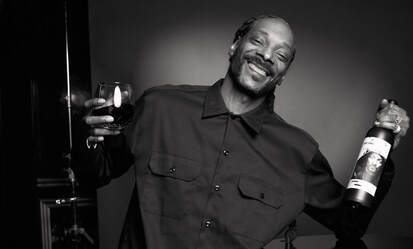 Snoop Dogg living his best wine life. Image from DrinksTrade.com Snoop Dogg living his best wine life. Image from DrinksTrade.com Clean wines are derided as nothing more than marketing gimmicks aimed at the “wellness obsessed,” at least so says a well-known wine journalist whom I respect and admire. But I find myself asking, so what? What do you think slapping an augmented reality label on the bottle and partnering with Snoop Dogg is? What do you think Jean-Charles Boisset’s ambassador program is? Is anyone outraged by House Wine partnering with Cheez-Its for the ultimate wine/snack duo? Actually, don’t answer that. I count myself as someone who is wellness…focused. I work out between five and seven days per week. I try my best to eat well, opting for whole grains, fruits and vegetables, and lean protein where possible, but also not shying away from fried chicken, bacon, chocolate, and the occasional fast food indulgence. And I have also dedicated the last 15 years of my life to the study of wine. I take some offense to being dismissed as someone who can’t possibly be serious about wine if I am also serious about taking care of my physical and mental health. I have been very outspoken about the culture of over-consumption and risky behaviors that pervade the wine industry, regularly questioning if we drink too much in this drinks business. To see any brand – whether they’ve earned their stripes or not – bringing to market a product that at least starts to address themes of wellness and transparency is encouraging.
Let’s also not forget that the wine industry created this problem to begin with. By not requiring wines to have ingredients labels on them – regardless of which side of the aisle you’re on when it comes to that battle – our very industry set up a status quo that practically rolled out the red carpet for enterprising winemakers and marketers to fill a need on behalf of consumers asking these questions. And, by not making the effort to educate consumers on why ingredients labeling on wine may or may not be necessary, we have added fuel to this fire. Imagine if the wine industry had actually come together for once to create an entertaining and inclusive large-scale educational campaign to explain, in layman’s terms, things like how many of the additives allowed in wine are often precipitated out and thus no longer really “in” the wine as an ingredient. What if we had taken real steps to show fearful consumers that “Mega Purple” – which may sound horrifying and possibly chemical to the likes of Power and Diaz – is simply super concentrated, high sugar grape juice, even if you as a winemaker choose not to use it? We have missed a huge opportunity here to engage the consumer, and, in the meantime, other entrepreneurs got there first, and actually met inquiring and aspiring wine drinkers where they are. 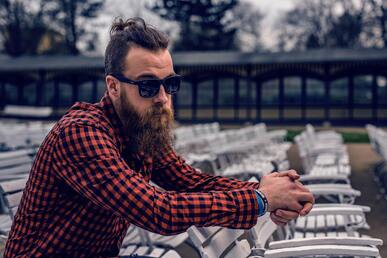 "Oh I don't drink anything that casts a shadow." Photo by iiii iiii from Pexels "Oh I don't drink anything that casts a shadow." Photo by iiii iiii from Pexels The way I see it, if brands like Avaline, FitVine, Dry Farm Wines, or Scout & Cellar get Chad from the gym who benches 350 lbs, carries around one of those plastic gallon jugs of water wherever he goes, and usually only drinks Michelob Ultra with his other bro-y dudes to check out the wine space, everyone wins. If it gets hipster Sienna who prefers hard Kombucha, single-origin pour-over coffee, and CBD to give the wines a taste, everyone wins. Isn’t the goal to expand the wine market, not shrink it out of exclusivity? I just browsed through a fascinating twitter thread kicked off by VinePair’s Erica Duecy, who asked her network “What is the biggest threat facing the wine industry right now?” So many sharp minds in the biz weighed in, listing things like “Baby Boomer attrition” and “Lack of speed/interest to adapt,” and ”Apathy…on the part of producers who believe (and are encouraged to believe by some media) that they have the right to exist w/o changing”. Jacqueline Coleman’s observations were particularly spot on. She cites “An inability to accept curious consumers who aren’t ‘experts’” as one of the biggest threats right now, noting that, “The industry in general is still very stuck in its ways, & losing potential newbies fast by being judgmental & cranky about every new thing.” PREACH, sister. So WHY are we still seeing hate pieces about every new brand that comes out with something offbeat or, dare I say it, gimmicky? I saw at least one of Erica’s respondents share one of the anti-clean wine stories. It’s belittling to consumers who may be branching out into wine for the first time, as well as to long-time wine lovers who want to try something different, lapel pin or not. Don’t bite the hand that feeds you, I say. Wunderkind sommelier Victoria James made some brilliant points in her piece for Esquire, “Celebrities Could be Making Good Wine. Instead, They’re Making Bad Wine for Good Money.” Her articulate push for celebrities to use their influence for more meaningful pursuits in climate change, social and racial justice, and politics, when creating their wine brand made me openly swoon. She also observed that wine, “Can express a taste of terroir, a somewhat mystical term that describes a sense of a place. The simplicity of this notion is what makes it so sacred.” Perhaps this is where she and I diverge. While I agree with her wholeheartedly on the beauty of the history, traditions, climate, and agriculture that make up a spectacular wine, I believe wine’s sacredness as a whole lies in so many other things: namely, that it is a product of pleasure that has the power to bring people together, and provide a social lubricant that enables conversation, intimacy, and moments of joy. She goes on to note that the wines that celebrities lend their names to, “Seem to avoid exploring this idea of terroir [Don’t tell Alecia Moore/AKA Pink!], and instead fall prey to marketing teams who favor the lifestyle categories of wellness and luxury, as viticulture and vinification methods take a back seat.” I suppose I would ask… but what is wrong with this? Does being a celebrity who wants to create a wine brand necessitate speaking of terroir in order to appeal to the consumer? I have personally watched people glaze over during wine events I have hosted for everyday consumers when I start waxing poetic about this exposition or that soil type. Some of the biggest wine brands out there, regardless of how you feel about them, wouldn’t know terroir if it goosed them at a party. And that’s not a bad thing. Can we not have the Chateau Margauxs and Screaming Eagles and Quintarellis – and celebrate everything extraordinary about those wines – but also have the other stuff too? The stuff for those who just want a glass of something that aligns with their needs, wants and aspirations, whatever, whenever, and why-ever those might be? Context is everything in life and in wine.
Let the terroirists have their dirt and drink it too. But let everyone else who just wants to drink some wine with some friends do so without feeling like they are getting it wrong, even if it’s a bottle of Skinnygirl Pinot Grigio. If this industry is ever going to survive, we are all going to need to be able to play in the same sandbox (sandy loam box?). Who knows, we may even learn a thing about sharing – or terroir – while we’re at it. I drink every day. Almost without exception.
It is part of my daily ritual... in some ways part of my identity. And it brings me great pleasure. At the end of the day, when I close my laptop, I love to open a bottle of something white and crisp. I turn on music, cook dinner, watch my kids play (or fight), and take in the life I have built. Sometimes these reflections are joyful. Sometimes they are frustrated and tired. Either way, I view this moment in my day as a great one. When I serve dinner, I tend to pour myself and my husband something red. I often sip this throughout the night, sometimes even taking the last few mouthfuls to bed with me as I watch a favorite show or finish up work or mindlessly scroll through my phone, enjoying those few moments to myself. A lunch or dinner among friends without wine seems like a missed opportunity to me. Not to catch a buzz, but to go back in time, connect with the land, and experience multi-sensory pleasure. Wine is a fantastic accompaniment to food, a wonderful social lubricant, and a small mechanism for making an ordinary moment feel extraordinary. Is it the only way? Of course not. But it's a nice way, an age-old way, and that way is currently taking a beating. And, for the first time, writing this down suddenly feels like a guilty confession. I am actually bracing for an onslaught of negative commentary after hitting "publish" on this one. As the ubiquitous and well-intended "Dry January" -- something in which I have never participated -- comes to a close, and I take stock of all the pro/con articles about it out there, as well as the informal documentation on social media from those on the wagon for the past near 31 days, I find myself feeling protective of my beloved drink. My wine. My industry. I find myself asking... when did this happen? When did everything change? When did behaviors on the extreme ends of consumption start to determine the go-forward plan for everyone? |
AuthorDevin Parr writes about wine -- drinking it, making it, life with it, traveling for it and the business of it. She also dabbles a bit in careers and parenting. Archives
January 2021
Categories
All
|
Company |
|

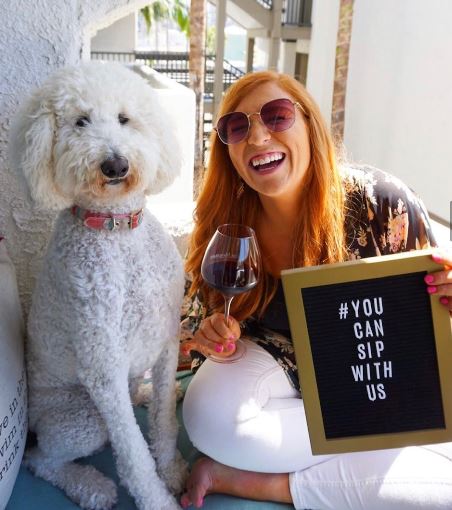
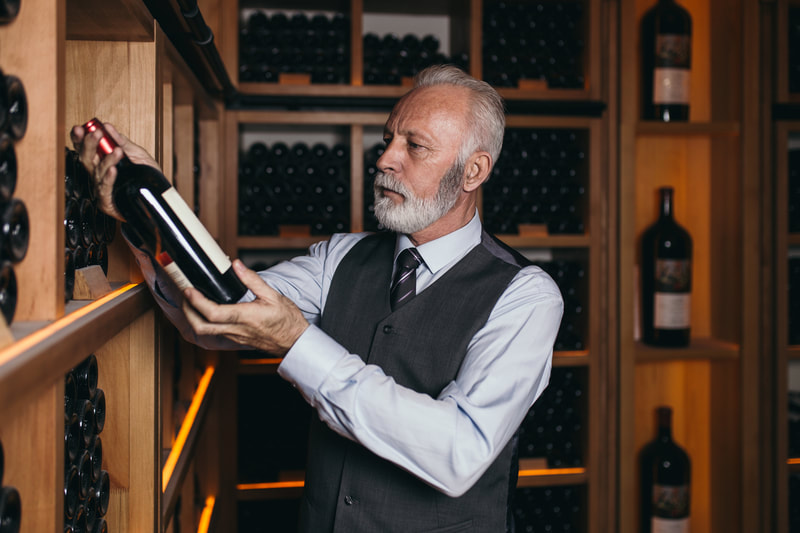
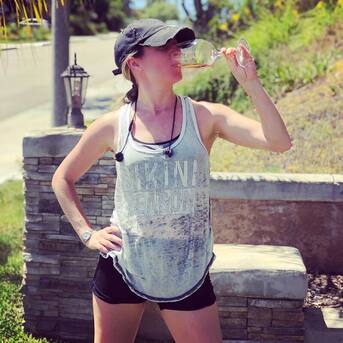
 RSS Feed
RSS Feed